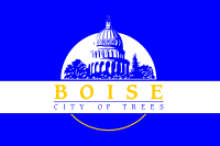County and State Partner For Local Connectivity in Iowa
In 2010, the Iowa Communications Network received a $16.2 million Broadband Technology Opportunities Program (BTOP). The project will connect all 99 counties in the state by upgrading an existing 3,000 mile network (PDF of the project summary). The state plans to bring 10 Gbps capacity points of presence to each county and to provide 1 Gbps service to about 1,000 anchor institutions. The project will be managed by the state's Department of Transportation, which will be using fiber primarily for traffic management.
A recent Ames Tribune article reports that the local community will be partnering with the state to capitalize on the existence of the fiber for connectivity. Story County, located in the very center of the state, will soon be using several strands in the Ames area to create a loop between city and county offices. The 20-year arrangement will cost the county $15,000 and provides ample capacity to support the county's work and support future uses. From the article:
“For us this is a huge windfall,” [Story County Information Technology Director Barbara Steinback] said. “If we were to go on to a project like this on our own, it would cost between $250,000 and $300,000.”
The opportunity comes at a good time for Story County. The sheriff’s office recently began using new mobile laptops that Steinback said have been putting a strain on the network and, along with some other projects, has been resulting in some slowness issues.
“So we do need to take advantage of this opportunity,” she said.



